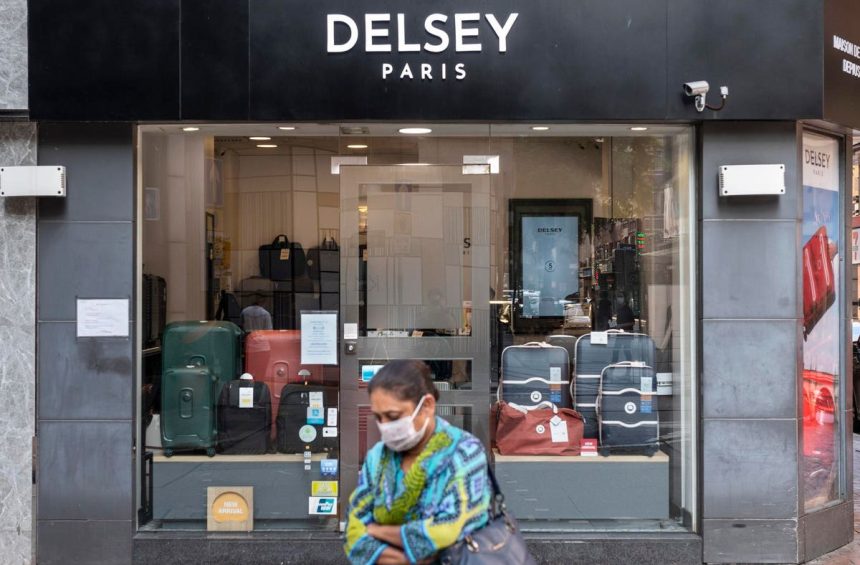By Saman Rizwan
The coronavirus pandemic touched virtually every business on the face of the planet. The first six months after the outbreak of the virus saw average sales fall by 45% globally, with a further 27% slump in the ensuing quarter. Many companies simply did not survive; by September 2020, almost 100,000 firms had gone out of business in the US alone, with countless more following suit around the world.
Yet adversity often presents opportunity. While the pandemic was undoubtedly a challenging time across all industries, certain enterprises have managed to transform it into a springboard for bouncing back stronger with bold leadership, key investments in technological innovation and a renewed customer focus.
Re-imagining Marks and Spencer
After a period of Covid-19 stagnation, British department store stalwart Marks and Spencer has enjoyed a fruitful two years. Revenues were up 21.5% in 2021, the company’s fastest growth in a decade, topped off by M&S’s best ever Christmas for food sales and their highest clothing market share since 2013.
These impressive gains have been achieved through creatively rethinking their overall strategy, notably transitioning from a traditional domestic goods to a more food-focused approach. M&S’s 2019 purchase of a 50% stake in online grocer Ocado has been a key part of this process—though tellingly, the aforementioned Yuletide figures do not include Ocado sales—all the more impressive considering that around 30% of M&S customer baskets came from the platform.
Nonetheless, an emphasis on improving its online capabilities – facilitated by its acquisition of logistics firm Gist last year – and diversifying its vegan and organic offerings have endeared the company to a younger audience. Furthermore, the planned closure of 67 full-line stores and opening of 104 new food-specialised sites away from town centres represent the kind of future-oriented thinking that should sustain its success.
Delsey has wings once more
While online food sales were one of the few markets to enjoy steady growth during the pandemic, the travel sector was hit hard. Almost overnight, overseas travel become difficult-to-impossible, with predictably disastrous effects on firms such as French luggage company Delsey. The top domestic and third-ranking global performer suffered a 70% drop in sales in 2020, saved only by drastic action from then-CEO Isabelle Parize, who was forced to lay off 50% of staff.
However, Delsey has since achieved a remarkable renaissance. In June 2021, the company brought in Davide Traxler, a corporate restructure expert with a well-established track record of reversing company fortunes, as its new CEO. Less than two years into Traxler’s tenure, Delsey is booming—its 2022 full year results, recently released, revealed that Delsey’s net global sales grew 124% year-on-year, exceeding pre-pandemic levels and outpacing the broader sector’s post-pandemic recovery by nearly four times.
This upswing has been made possible by visionary partnerships – including with Peugeot and Alfa Romeo – to drive new product lines, as well as Delsey’s renewed commitment to break into new international markets. For example, Delsey is significantly expanding its footprint in Asia, partnering up with high-profile ambassadors like Chinese Formula 1 driver Guanyu Zhou and opening new boutiques like its new concept store in Shibuya, Tokyo to add to its total of 6,000 points of sale in 110 countries worldwide. In 2022, the company’s growth in the US was particularly notable, as the company’s sales nearly tripled year-on-year to $96.6 million.
Barnes and Noble defying doom-mongers
Whereas Delsey was flying high before Covid-19, Barnes and Noble had been struggling for some time. The veteran bookshop juggernaut was at the peak of its powers in 2008, with 726 stores worldwide, but the following decade brought nearly 100 store closures, four CEOs in as many years, $18 million in losses and an 80% plunge in its share price. Edged out by online alternatives like Amazon, the company was feared to be on its last legs.
However, 2022 saw the opening of 16 stores, with 30 more planned for the coming year. The secret to its Lazarus act? Hiring James Daunt as its new head. Daunt placed a renewed emphasis on the books themselves, staff and customers. He instantly purged Barnes & Noble’s shelves of all superfluous stock, while eschewing promotional payments to publishers, instead empowering store employees to arrange book displays as they see fit.
By bringing the passion back into bookselling, Daunt already successfully resurrected British bookseller Waterstones—while it’s early days with Barnes and Noble, its forthcoming expansion in 2023 makes for a promising outlook.
Puma excelling by prioritizing performance
Another example of a CEO successfully replicating lessons learned from a past business venture is unfolding in the sporting goods and footwear industry. After trying to gain a stronger foothold in the fashion market in 2009, Puma subsequently saw their staple performance sportswear goods slip and their brand identity become blurred, prompting them to bring Bjørn Gulden on board as CEO to steer the ship back on course.
Gulden immediately put the focus back on performance, signing sponsorship deals with big names such as soccer maestro Neymar and music icons including Dua Lipa, Jay-Z and Rihanna that have played a significant part in sparking its revival. At the end of 2022, the company’s annual sales and total revenue were at record levels.
By contrast, rival Adidas has suffered a troubling slump, not least due to the $250 million hole in its projected revenues and the 56% dip in its share price caused by the fallout from the Kanye West controversy, leading the German giant to follow Puma’s lead and hire Gulden as its new CEO on 1 January. Judging by the 20% fillip in its share price even before the contract was signed, it’s widely believed he can engineer their recovery.
Case studies provide post-Covid blueprint
While Covid-19 certainly precipitated many hardships for businesses, it also presented new opportunities for the innovative. Young, fledgling companies may have an easier time adapting, but these four survival stories show that incumbents can overcome external pressures and get back on top with a forward-thinking approach. Armed with the boldness to venture into new markets while preserving the heart of its business and incorporating digital innovations, any company with a good head on its shoulders can achieve its own post-pandemic revival.
Read the full article here






